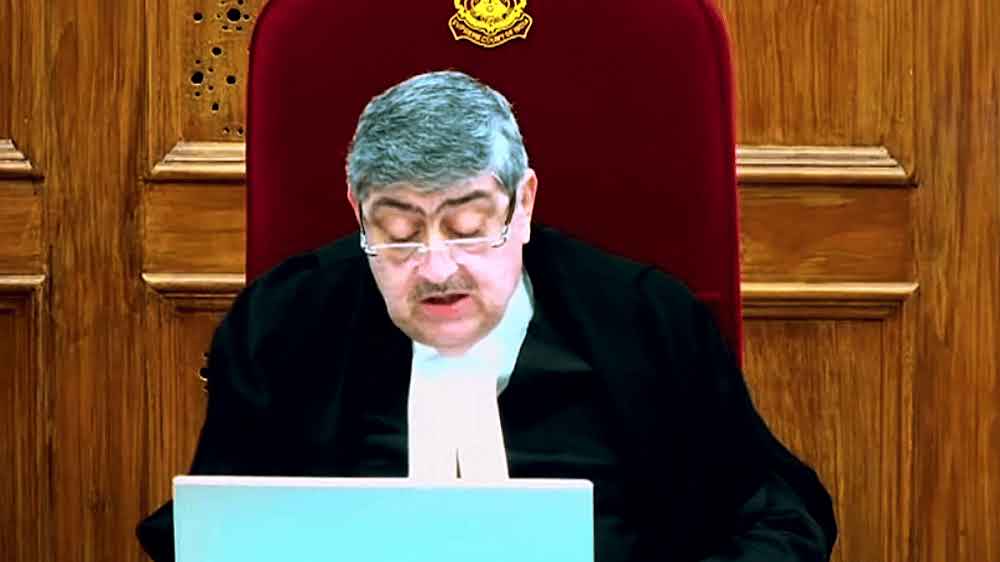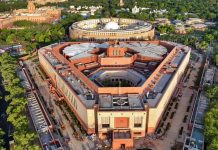
Justice Sanjay Kishan Kaul has advocated setting up a Truth and Reconciliation Commission in J-K to address the human rights violations that have scarred the region since the1980s. But the proposal is fraught with complexities in the present climate in the valley. A report by Riyaz Wani
When Justice Sanjay Kishan Kaul recommended establishing of a Truth and Reconciliation Commission in Jammu and Kashmir, it brought to the fore the memories of the long-buried past in Kashmir. The proposal aims to address the historical human rights violations that have occurred in the region since the 1980s, involving both state and non-state actors.
Justice Kaul emphasised the urgency of setting up the commission, highlighting that a generation has grown up amidst distrust, and it’s crucial to address these issues before they fade from memory. He stressed the importance of reparation, especially towards the youth who have been deeply affected by the conflict.
Moreover, he suggested that the commission’s approach should be empathetic and not resemble a criminal court. It should prioritize a humane and personalized process, enabling individuals to share their experiences openly, Justice Kaul said while stressing the significance of dialogue and inclusion of diverse perspectives in this process. He expressed hope for reconciliation, urging for an embracing of the past and facilitating the dignified return of those who were forced to migrate.
This proposition by Justice Kaul underlines the necessity for acknowledging past grievances, fostering dialogue, and seeking reconciliation to move towards a more peaceful future in Jammu and Kashmir.
The idea is not new
It was in summer 2008 when Omar Abdullah, as an opposition leader, mooted the idea of the Truth and Reconciliation Commission to probe human rights abuses in the divided parts of Kashmir. He said that if voted to power he will make sincere efforts in this direction. He was duly voted to power towards the end of that year and ruled the state for the following six years. To his credit, he sporadically spoke about the Commission but hardly made a serious effort to constitute it. Indeed, he couldn’t have done it of his own. He needed the concurrence of New Delhi and Islamabad for this. Omar envisaged an ambitious remit for the commission spanning the governments of India and Pakistan, something he reiterated at the National Conference function just a few days ago.

“I have always said a truth and reconciliation commission should be formed by India and Pakistan to find out what happened in Jammu and Kashmir during the last 25 years, and who is responsible for that,” he told the media in Srinagar.
In 2011, in a 27 page Action Taken Report submitted to the State Human Rights Commission over the then discovery of 2700 unmarked graves, J&K Government led by Omar said it wanted the Truth and Reconciliation Commission to investigate the issue. The report stated that the Government shall look into all the aspects relating to the establishment of such a Commission. The report further said that the forming of the Truth and Reconciliation Commission for the State would “require consultation and broad consensus among all the stakeholders”.
Omar also raised the issue of setting up of the Commission in the meeting of the National Integration Council held in New Delhi in September 2011. Also speaking in the J&K Assembly in the same year, Omar explained the Commission as “an Indo-Pak joint strategy in the form of a Jammu and Kashmir centric confidence building measure so that all aspects of militancy, its origin, its impact on people, issues of disappearance, migration and many more related concerns are studied threadbare and addressed accordingly for reconciliation and healing”.
And in 2014, Omar once again brought up the issue on the politically loaded day of January 19 which Muslims in Valley remember for the massacre of 52 people by the security personnel at Gawkadal in Srinagar and Kashmiri Pandits recall as the day of their exodus from Valley.
“Whether it’s the Kashmiri Pandit exodus or incidents like Gawkadal, that is why India and Pakistan owe J&K a truth & reconciliation commission,” Omar then wrote on micro-blogging site Twitter, now X.
However, National Conference rival and the now the would-be ruling party PDP has traditionally opposed such a commission. The party has argued that the Truth and Reconciliation Commission cannot be cut and pasted from South Africa to Kashmir. PDP has instead sought Justice and Resolution in Kashmir, explaining that “unless the state gives justice to its citizens, there cannot be reconciliation”.
Both parties may have a point. But the question is whether a Truth and Reconciliation is after all a practical proposition under the circumstances. In any case, such a commission can only be a post-resolution phase. But even then the truth and reconciliation, as Omar seeks it, will hardly serve the purpose. At the end of the day, those who have suffered will demand justice. Over the past 26 years, thousands of people have suffered. And if anyone has remained untouched by these sufferings, it is their perpetrators. Verbal acknowledgement of the atrocities does have its uses in salving the wounds but the true healing only starts when the people responsible for them are brought to account. To his credit, Omar has talked about the truth and reconciliation in the past. But a true closure is only possible if we add one more word to this improbable process, the justice: it should be Truth, Justice and Reconciliation.
Reconciliation after abrogation of Article 370
The political parties in Kashmir are seeing little prospect of a grand reconciliation following the withdrawal of Article 370 in August 2019 and its endorsement by the Supreme Court. When asked about Justice Kaul mooting the idea, the National Conference leader Tanvir Sadiq said the proposal was actually his party’s.
“We believe justice Kaul must have heard or seen Omar Abdullah’s discussions on truth and reconciliation commission since 2000’s. This is a cause we endorse,” Sadiq said in a statement. “Omar has been a steadfast proponent of establishing the commission, a position he has championed since his tenure as chief minister.”
The PDP, on the other hand, voiced skepticism about the commission, even though it didn’t seek resolution of Kashmir as a precondition for it as it did earlier. Party spokesman Mohit Bhan told media that there was a “void too big and the mistrust was too humongous” for the commission to be able to fill it.
People’s Conference chairperson Sajjad Gani Lone also supported the idea, tracing its advocacy to the party’s original vision document, ‘Achievable Nationhood’ authored by Lone.
Going forward it looks highly unlikely that the commission could ever become a reality. And should the commission be after all constituted in the prevailing situation, there is little that it could achieve in the bewilderingly complex and polarizing environment of Kashmir.













